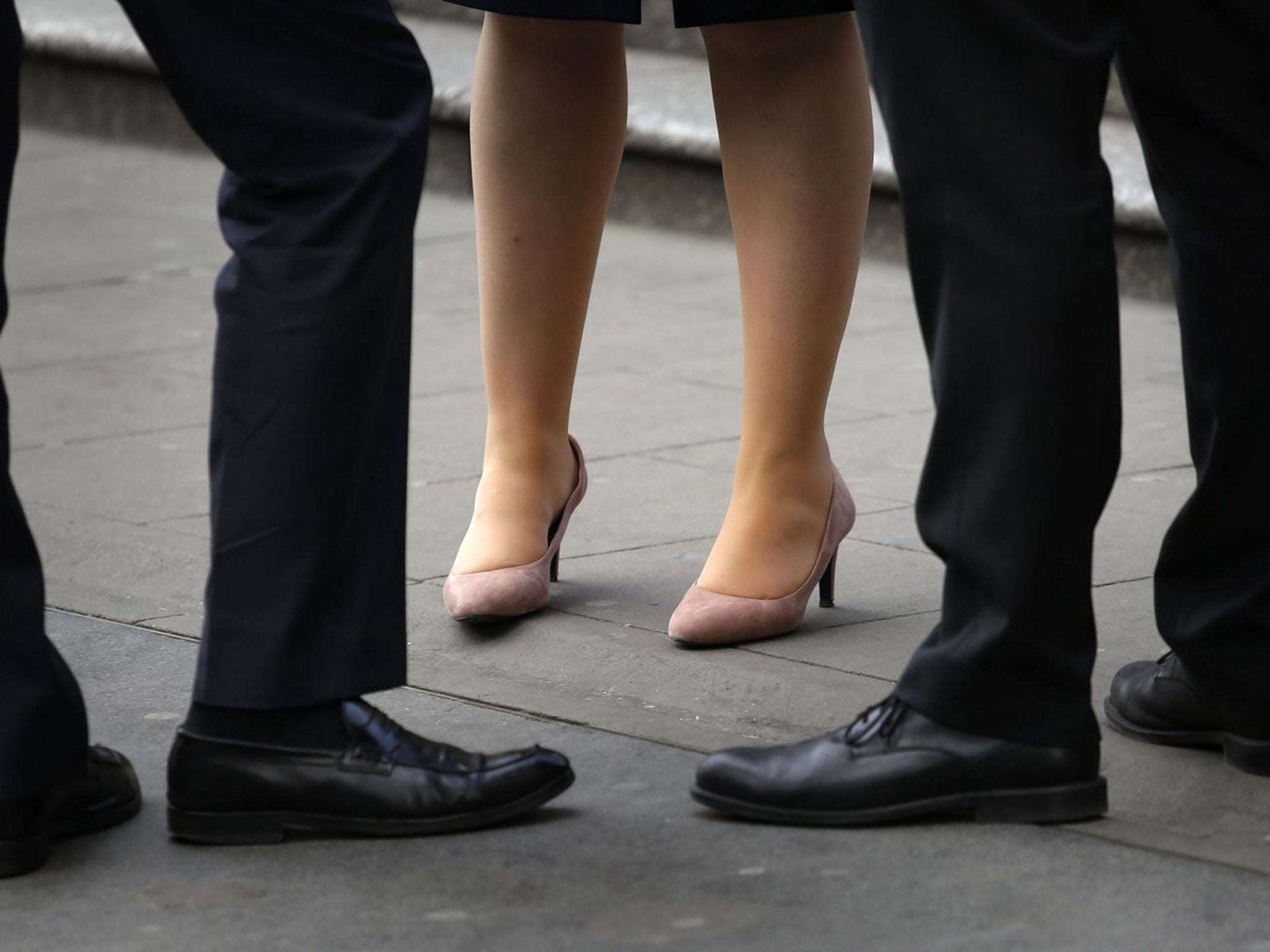Brexit: Government faces inquiry into gender pay gap laws
Exclusive: 'The Government must not use Brexit to wriggle out of its responsibility to tackle the pay gap'

Ministers are facing a parliamentary inquiry amid concerns that Brexit will allow them to sidestep implementing tough new binding EU rules on equal pay and the gender pay gap.
An influential committee of MPs has warned that the Government is not providing answers about what it will replace proposed EU-wide equal pay monitoring systems with once it leaves.
Campaigners said the Government must not use Brexit to “wriggle out” of its commitment on equal pay, while an MP on the committee told The Independent that a minister should be summoned for cross-examination on the issue.
The European Commission’s action plan on equal pay, released in November, lays out policies to mandate sanctions and compensation for the victims of unequal pay, gives legally binding rights for workers to request information on equal pay in their companies and mandates that countries strengthen enforcement powers against firms breaking the rules.
In a report from its first meeting of 2018, Parliament’s European Scrutiny Committee said current government policies “beg the question of whether and how the UK will maintain its own commitment after Brexit to reduce and eliminate the gender pay gap, in default of EU initiatives, supervision and enforcement mechanisms on equal pay”.
The Government insists it is still committed to eliminating the gender pay gap – but when approached by The Independent, a spokesperson did not spell out any plans for introducing regulations equivalent to the full range proposed by the EU.
Sophie Walker, leader of the Women’s Equality Party, told The Independent: “The Government must not use Brexit to wriggle out of its responsibility to tackle the pay gap between men and women.
“The European Scrutiny Committee is right to pose this question, and the Government should now prove its commitment to addressing the factors that cause the gender pay gap.
“That requires a crackdown on outright pay discrimination, as well as action to address the structural inequalities – such as the cost of childcare, the fact that women do the majority of unpaid care, a failure to make sure boys and girls are instilled with equal aspirations and opportunities – that lie beneath the pay gap.
“The Government should start by redesigning equality legislation and require firms reporting a pay gap above 5 per cent to release details of their hiring, promotion and parental leave policies and the salary bands of their male and female workers, both full- and part-time. This transparency would flag where their work practices had implicit discrimination or bias.”
“The Government must not use Brexit to wriggle out of its responsibility to tackle the pay gap between men and women.
Geraint Davies, a Labour MP who sits on the committee, told The Independent: “The European Scrutiny Committee is concerned the gender pay gap could get wider after Brexit, not narrower. In fact, the new Department for Exiting the EU has one of the worst gender gaps so could be leading the way backwards.
“We have written to the Government asking what action it will take to reduce the gender pay gap and to enforce progress and then I will be pressing the Committee to summon a minister for cross-examination.
“Brexit threatens to put Britain into reverse gear in terms of equal pay for women which would be a disaster as women have already disproportionately suffered from Government austerity.”
The cross-party European Scrutiny Committee assesses the legal importance of EU missives, draft legislation and documents to the British Government, and cross-checks them against the Government’s own plans. It then decides whether or not a document needs more parliamentary security – as in the case of the gender pay gap action plan.
The documents relating to the gender pay gap regulations have now been passed to the Women and Equalities Committee for interrogation and have also been drawn to the attention of the House for further scrutiny. The European Scrutiny Committee has written to the Government asking it to clarify what action it will take.
Asked about what it would replace the incoming EU rules with, a Government spokesperson said: “Action taken by this Government means that we are one of the first countries in the world to require all large employers to publish their gender pay gap and bonus data.
“This is not an option, it is the law. Employers have until 4 April 2018 (or 30 March 2018 for the public sector) to report and this will help shine a light on where women are being held back and where employers can take action to support their whole workforce.
“We are proud to say that the full-time gender pay gap is the lowest it has ever been but we want to take this further – we are committed to eliminating the gender pay gap entirely.”
Join our commenting forum
Join thought-provoking conversations, follow other Independent readers and see their replies
Comments
Bookmark popover
Removed from bookmarks